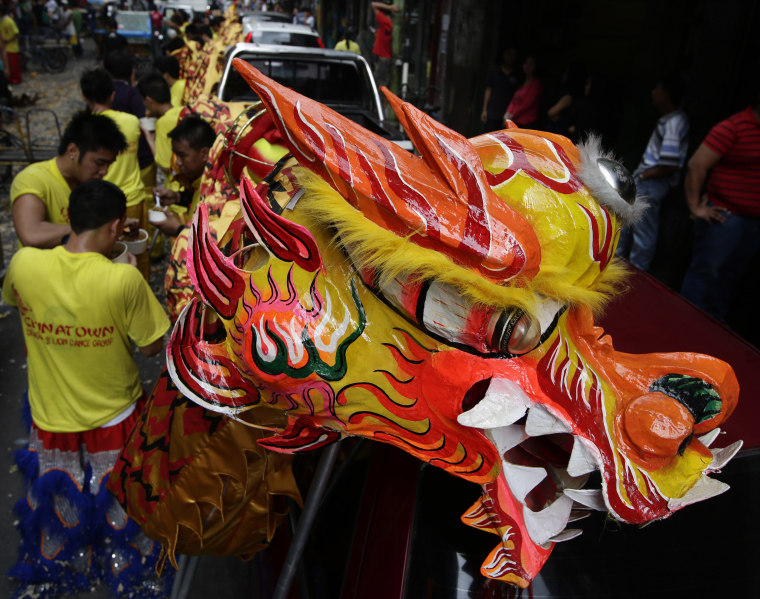Massive portions of the Earth’s population begin a two-week celebration of the new luni-solar calendar Sunday. “Chinese New Year,” as it is known in the West, is somewhat of a misnomer as the term overlooks the fact that countries as culturally different as South Korea and Indonesia recognize the holiday, as well as Chinatowns from San Francisco to Sydney.
While the worlds of media, business, and communications overwhelmingly operate on the Roman calendar, the end of the year of the dragon and the beginning of the year of the snake holds deep cultural significance for billions. Edwin Ma Lai-Wah, head of the Hong Kong Fengshui Master Association and Lu Shan Kuntun Taoist Institute, told ArtInfo the 2013 Year of the Water Snake marks the arrival of the “ten dragons controlling the flood waters,” awfully prescient wisdom considering the back to back storms blanketing the majority of the U.S. in precipitation. Lai-Wah also says that 2013 will also be a year of polarization marked by disparity in fortune and wealth, in fact the water element of the Chinese zodiac is interpreted to refer to money.
Expecting parents also pay close attention to the zodiac signs of their unborn babies. Malaysia’s oldest newspaper, The New Strait Times, reports that hospitals around the world have been full of couples trying to induce last-minute dragon babies, which are widely believed to be lucky and successful. This widespread belief leads to the phenomenon of over-populating on dragon years leading to children born in those years facing increased competition as they have higher numbers of peers.
Once the festivities are over, the Chinese will not waste much time getting down to business. This March, the Chinese National People’s Congress will convene and Xi Jinping, the current General Secretary of the Communist Party of China, is expected to replace Wen Jiabao as China’s head of state. In an auspicious turn of fate Jinping is himself a “snake” (born in 1953), and the world is wondering just who he may be poised to bite.
The emerging leader spent the holiday posing for photos with Beijing construction workers and has recently called for “sharp criticism” of the Communist Party according to The New York Times. But with 70 Tibetans recently detained in crack down on self-immolation protests, and one of the world’s strongest internet-censorship regimes, Jiping’s critics have no shortage of reasons to be wary of the next zodiac-cycle’s political tenor.
Whether you’re taking out Chinese firewalls or just ordering take-out, we want to hear your Chinese New Year stories in the comments and on Facebook.
